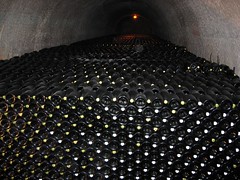The evidence from other countries, especially the US, is that a successful Lib Dem leadership candidate will use the internet to build up a community of supporters backing their candidacy.
Howard Dean (or, more accurately, Joe Trippi) led the way on this via the use of meetup.com to encourage Dean supporters to meet and work together, the Blog for America which provided a platform for online discussion and an email list to get campaign messages out to his supporters and consult them on their views.
To help this process along, I’ve modified Flock Together to enable leadership contenders and their supporters to organise easily and make it easy for members to get news about nearby hustings and the leadership campaign.
So, what would I expect from any contender for the party leadership – at least technologically?
The evidence from other countries, especially the US, is that a successful candidate will use the internet to build up a community of supporters backing their candidacy.
Howard Dean (or, more accurately, Joe Trippi) led the way on this via:
- Use of meetup.com to encourage Dean supporters to meet and work together. To this end, I’ve modified Flock Together to enable leadership contenders and their supporters to do likewise and also make it easy for members to get news about nearby hustings and the leadership campaign.
- The Blog for America which provided a platform for online discussion (subject to some moderation) and captured the thoughts of Dean’s team as the campaign progressed. There’s a useful list of tips on best practice preserved on the Howard Dean site. With sites like Liberal Review and Lib Dem Blogs gaining ever more readership within the party, blogs are likely to be more important during this campaign than ever before.
- An email list to get campaign messages and ideas out to his supporters and consult them on their views. And if US experience isn’t persuasive, David Cameron also had daily messages going out via email.
- A website pulling all the above together, providing useful information on the candidate’s activities, views and beliefs and offering lots of ways to donate or get involved
Of course, the experience of the Howard Dean campaign also makes it clear that none of this is a substitute for a strong policy platform, effective media management and the ability to communicate effectively with the public and the party.
However, given the way that the recent problems in the party have been exacerbated by lack of adequate communication with the membership, borrowing some of these practices would be a helpful step forward and a good basis for improving how the party operates ongoing.

